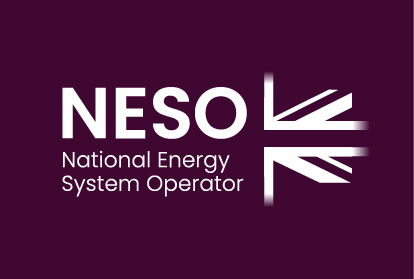This project will support the development of a first of its kind end-to-end system planning methodology (Regional Whole System Strategic Planning (RWSSP)) which accounts for deep and long-term uncertainty whilst driving whole system outcomes.
The new RWSSP methodology could support future Regional Energy Strategic Planning (RESP), ensuring transparent, consistent and robust planning approaches across the proposed 10-13 RESP regions.
This initial project aims to understand the landscape within which the RWSSP and RESP is being developed and define: the problem(s) being addressed by the RWSSP methodology; what is a “minimum viable product” (MVP) and enduring solution for the RWSSP methodology. It will also establish an outline structure for the future RWSSP methodology, to be built out in future phases.
Benefits
This project will explore how an RWSSP methodology should be developed which can support delivery of the outcomes RESP is trying to achieve and; de-risk future development of a RWSSP methodology for the RESP function, unlocking the following benefits:
- Enable whole system regional infrastructure investments - particularly in network capacity (aligned with local needs, National targets and other relevant strategic plans) to be accounted for in the context of future uncertainty.
- Demonstrate a robust methodology which ensures the outcomes of the RESP function are themselves robust and transparent.
- Ensure future energy infrastructure is efficiently designed, fit for purpose and aligned to Net Zero, facilitating anticipatory investment decisions where appropriate.
- Enable efficient infrastructure investment which is transparent, fair and defensible, shares risk and value and reduces cost to consumers.
Learnings
Outcomes
The project has successfully developed a framework methodology for Regional Whole System Strategic Planning (RWSSP).
Key outputs include:
- Development of RWSSP Methodology: The project established a detailed methodology for RWSSP, which includes adaptive planning, scenario modeling, and stress testing. This methodology allows for flexibility to ensure robust and flexible regional energy system plans
- Whole System Service Value Framework (WSSVF): The development of a WSSVF was a significant addition to the project. This framework provides a consistent set of metrics to evaluate the performance of different energy system pathways, ensuring that stakeholder needs are met
- Stakeholder Engagement: Engagements with various stakeholders were conducted as part of the project and this ensured their needs and perspectives were incorporated into the thinking. More extensive engagement will be required during the detailed methodology development.
- Integration with Other Plans: The project highlighted the need for RWSSP to interface with other planning processes such as the Strategic Spatial Energy Plan (SSEP) and Local Area Energy Plans (LAEPs). This integration ensures coherence and alignment across different levels of planning
- Governance Framework: A governance framework was proposed to ensure transparency, robustness, and consistency across regions. This framework includes mechanisms for continuous improvement and adaptation to external changes
- Digital and Data Management: The project emphasised the importance of digital tools and data management systems to support the RWSSP methodology. This includes the development of a common planning language and data standards
- Innovation Areas: Additional areas for innovation were identified, such as approaches to coordination, standardisation, and the incorporation of emerging networks and technologies
Lessons Learnt
Early Clarity on Governance and Roles
Uncertainty around the governance structure created ambiguity during delivery, so securing early alignment with regulatory bodies on roles, responsibilities, and reporting expectations was found to streamline development and reduce risk.
Stakeholder Engagement Must Be Structured and Inclusive
Engaging a wide range of stakeholders proved essential but complex, making it critical to establish a structured engagement strategy that captured diverse inputs, managed competing interests, and coordinated with other planning processes to avoid fatigue and duplication.
Adaptive Planning Requires Robust Data and Modelling Infrastructure
Delivering adaptive planning under deep uncertainty depended on high-quality, interoperable data and flexible modelling tools, which highlighted the importance of early investment in digital infrastructure, data standards, and scalable, open-source modelling capabilities.
Cross-Sector Learning Adds Value
Insights from water and transport sectors proved highly transferable, showing that benchmarking against other infrastructure sectors and adopting proven practices accelerated learning and improved outcomes.
Integration Across Scales and Vectors is Complex
Aligning national targets with local insights presented challenges but remained essential, requiring methodologies to include mechanisms that managed these interfaces and resolved contradictions through transparent trade-offs.
Innovation is Needed in Coordination and Value Assessment
Coordinating across multiple plans and assessing value consistently across regions and vectors demanded novel approaches, making it necessary to develop and test a Whole System Service Value Framework to support transparent and defensible investment decisions.
Flexibility in Methodology Design Supports Long-Term Success
The evolving policy and regulatory landscape required the methodology to remain adaptable, so designing modular, iterative processes enabled evolution alongside external developments and stakeholder feedback.
A Common Planning Language is Essential
Miscommunication between partners and stakeholders emerged as a risk, so establishing and maintaining a shared planning language and data taxonomy proved vital for alignment and effective collaboration.




